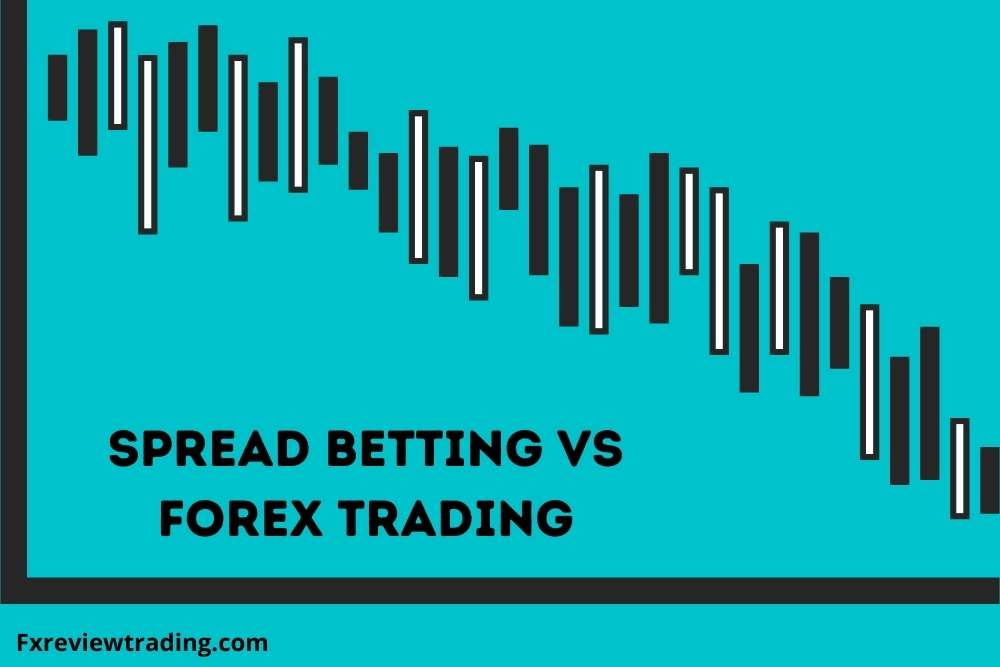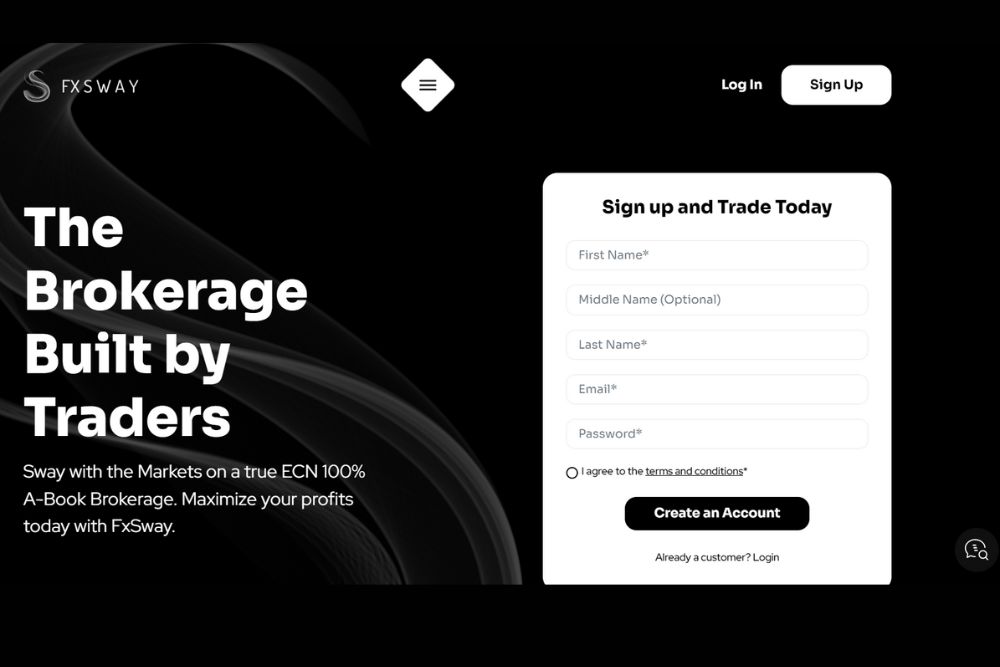Spread betting vs forex trading are the major topics of discussion these days because of the rapid growth of both markets. Forex trading is the trading of currencies over exchange whereas spread betting refers to betting on markets without buying assets. Through this article, we try to clear your doubt nuts about forex trading and spread betting.
What is Forex Trading?
Forex trading is an exchange of currencies taking place on an online platform. The exchange of international currencies means traders buy and sell the currencies to earn a profit in return. The foreign exchange market where the trade takes place is also referred to as Forex. It is a highly liquid market and therefore involves risk; traders or investors must be careful while investing in the forex market.
Moreover, the market has no centralised location, and the trade is carried out through over-the-counter methods or electronically through banks, brokers etc.
For instance, forex trade occurs daily; when we travel abroad, we have to exchange the currency. However, this is done for the traveller’s need; forex trade mostly is made for practical purposes to earn high profits. The market has increased volatility, and therefore, the chances of profit and risk both are high.
How does the forex market work?
Typically, we have seen that the trade-in in various markets involves a listed market exchange or a market directly, but with the forex trade, it’s different. Forex markets do not trade on the exchanges, but directly, traders deal with each other. The process is termed over-the-counter trading.
The market is pretty big and has various ways of trading involving financial instruments available 24 hours a day. Traders can exchange their currencies with the help of three types of the forex market. The trading through the markets is straightforward if understood well. Let’s analyse the three markets:
Spot forex market: It is the trade of forex assets, i.e. purchase and sell of the currencies on a spot day. The forex asset is traded on a spot price which is the exact value of the currency pair in the market. It is generally two business days of trade and therefore does not take much of the traders time.
Forward forex market: The forward contract of the currencies is the buy and sell off the set currencies at a fixed price. The trade is then settled on a fixed future date or a range of future dates.
Future forex market: Future contract involves buy and sell the currencies at a certain price. The trade is settled on a specified date by the traders and is legally binding on the traders. This unique feature of futures trading makes it different from forward contracts.
What is Spread Betting?
Spread betting, in contrast to the forex market, is quite different. It does not trade but bets in the market without purchasing the underlying asset. It is a derivative strategy, where the traders bet on the underlying securities like commodities and stocks etc.
In simple words, the participants of spread betting speculate on the increase and decrease of the asset prices. The best example of spread betting is stocks where the bid and ask price are quoted to trade. Here, the gap between the bid and ask price is referred to as the spread.
Through the spreads, brokers make profits and thus do not charge any kind of commission from the traders. Spread betting uses leverage ratio, traders ability to go long and short and market availability.
Traders check on the bid price if they feel there will be an increase in the security price and on the price when there’s a downfall in the market’s value. Thus, the bet gives traders a different opportunity to generate profits.
How does spread betting work?
In spread betting, traders have to track the value of the asset to hold a position in the market without having ownership of the security. Spread betting has some concepts on which it works, short and long trading, leverage and margin. The long and short term trading in the market is taken as per the market analysis.
Traders of spread betting can go long if they see opportunities for high profits or an increase in the market. Similarly, they can go short with small duration profits. Traders gamble on the rising and falling prices of the market. Mostly, investors go long when they buy or bet on the security and sell the security in the short run.
Leverage is the ratio provided by the brokers to have higher market positions. With the use of leverage, investors can invest in small amounts and hold a higher position. However, leverage increases the market position and the risks of the market as well.
This is because the risks are calculated on the basis of the market position of the trader and not the initial deposit. To manage the situation, traders can use risk management strategies to minimise the effect of the risks.
Margin is the percentage of the spread bet that traders invest as an initial deposit to start the trade. The margin helps traders to open a position in the market. We can say it relates to leverage; therefore, leverage is also termed as margin trading. The two types of margin, deposit and maintenance that are considered for spread betting.
A deposit margin is an initial amount that is required to begin the trade. Usually, shown as the percentage of the total trade. Maintenance margin is the additional fund that the traders need to open a position.
It happens when the open position begins to incur a loss. Brokers notify the traders in such situations, which is called a margin call. Traders have to then deposit funds or risk by closing the open position.
Differences between Spread Betting vs Forex trading
The two trading types are completely different from each other, but for beginners of the trade, it becomes quite a problem to understand. Here, we have compared the two and what makes them different at the core level for better understanding. The five key differences between the two are discussed below:
Leverage Ratio
Forex trading involves buying and selling of the forex assets or currencies, whereas spread betting is simply speculating on the market currencies or the securities. In this aspect of the trade, spread betting is a suitable investment for novice traders as it does not involve ownership and offers high leverage to the traders.
Thus, the trade positions are high with optimised returns. Leverage is the ratio that provides a high opening position with initial deposit; therefore, for spread betting, it is a margin-based return. However, traders must first understand the use of leverage in a trade before using it.
Tax-Free
Spread betting is tax-free for UK based residents, whereas Forex has no such benefit. When traders invest in the market, the buying and selling of securities incur tax, that is, the capital gains tax (CGT). Trading in Forex or even speculating in the forex assets follows certain tax payments.
Investors have to pay tax on the profits generated from the trade. Whereas spread betting in the UK is tax-free and is considered a gamble. Therefore, it does not charge any income tax on the profits derived from such trading.
Accessibility
When we compare the two forms of trading, forex trade provides access to the forex market, that is, the foreign exchange market and margin-based trading. The exchange of currencies makes it highly liquid and profitable for traders. But, the forex market still has a narrow and restrictive range of products and derivatives to trade.
On the other hand, spread betting is far more widespread. It offers traders access to several trading markets. Investors can bet on indices, commodities, stocks, Forex and many more opportunities to diversify the portfolio of the traders. In addition, enhancing the profits of the traders in the financial markets.
Trade
The most valuable part of spread betting is its direct betting on the price of the securities. There is no direct trading, and traders can bet on the currency pairs. Thus, the risk of holding and selling the security of the investors becomes nil.
The scalping strategies work the best with such trading. Traders can execute multiple trades at a time with long and short positions. However, this isn’t easy with the forex trade, as traders have the ownership. Therefore, they need to buy and sell securities to trade in the forex market.
Spreads
Spread refers to the distinction between the bid and ask price of the currency pairs in the forex market. The bid price is the cost at which the market maker is ready to purchase the securities. Whereas the ask price is the minimum price that the seller takes for security.
All the brokers of the financial market provide services of tight and various spreads. Therefore, spreads are a highly influential factor of the trade for earning profits. In a forex trade, the spreads are generally high, which could be harsh for short term traders.
On the other hand, Spreads betting has lower spreads, which makes it comfortable to trade in both short and long durations. Thus, it increases the convertibility of the security into cash.
Legality
Forex trading is present globally and could be traded from anywhere around the world. In comparison, spread betting is allowed mostly in the UK and Ireland, with some transactions in Canada. Spread trading is banned in some countries like the USA due to tax-free trading. Other countries, for example, are Japan, where forex trading is allowed but spread betting is banned.
Commission
Spread betting is a commission-free trade because the trade is based on the difference between the bid and the asking price of the assets. Moreover, traders do not require to purchase the security for spread betting. However, forex traders may have to pay commission charges for the profits earned or the use of services of the brokers.
Islamic Law
Islamic law does not allow gambling; therefore, spread betting is not used by Muslim traders. Whereas forex trading is carried out by the Muslim traders under the Islamic account provided by most brokers online. The Islamic account is set up as per the preferences of the Muslim traders.
Similarities of Spread Betting vs Forex Trading
We have discussed the differences between the two ways of trading; here, we will know about the similarities between forex trade and spread betting. Let’s quickly drive-in:
Leverage
Forex trade and spread betting both furnish the facility of leverage to its investors. The investors deposit only initial funds for trading and use the leverage ratio to trade on higher positions in the financial markets. However, the risk of the trader also increases with the leverage ratio.
Spread betting has a higher leverage ratio for its traders than forex trading.
Trading Platforms
The trading platforms used to carry out spread betting and forex trading are the same. So, the two use the same technical and fundamental tools for analysing the market. The user interface of the two is easy to understand and access. Trading platforms are designed keeping in mind the needs of the traders of all the markets.
Profiting
Traders of forex and spread betting can earn profits from long term and short term traders. In spread betting, traders predict the rise and fall of the value of security without considering the factor of change. Similarly, in forex trading, investors buy and sell the currency pairs and earn profits without relying on the increase and decrease in the market value.
Conclusion
Forex trading has a high reputation in comparison to spread betting. As forex trade is buying and selling of currencies, whereas spread betting is gambling. One significant thing that makes it difficult for traders to choose spread betting over forex trading. However, with the above-mentioned points and as per our view, spread betting is a good choice to trade.
Investors of the market can prefer both the trade types as they have their own benefits. The forex market has high liquidity and is a huge market. In contrast, spread betting has more leverage to offer. So, we can say both are feasible choices for trade depending upon the need and desire of the trader.
For trading in any of the two trades, investors can choose ROInvesting, TradeATF and ETFinance brokers. These have the best brokerage services online with all the necessities.








